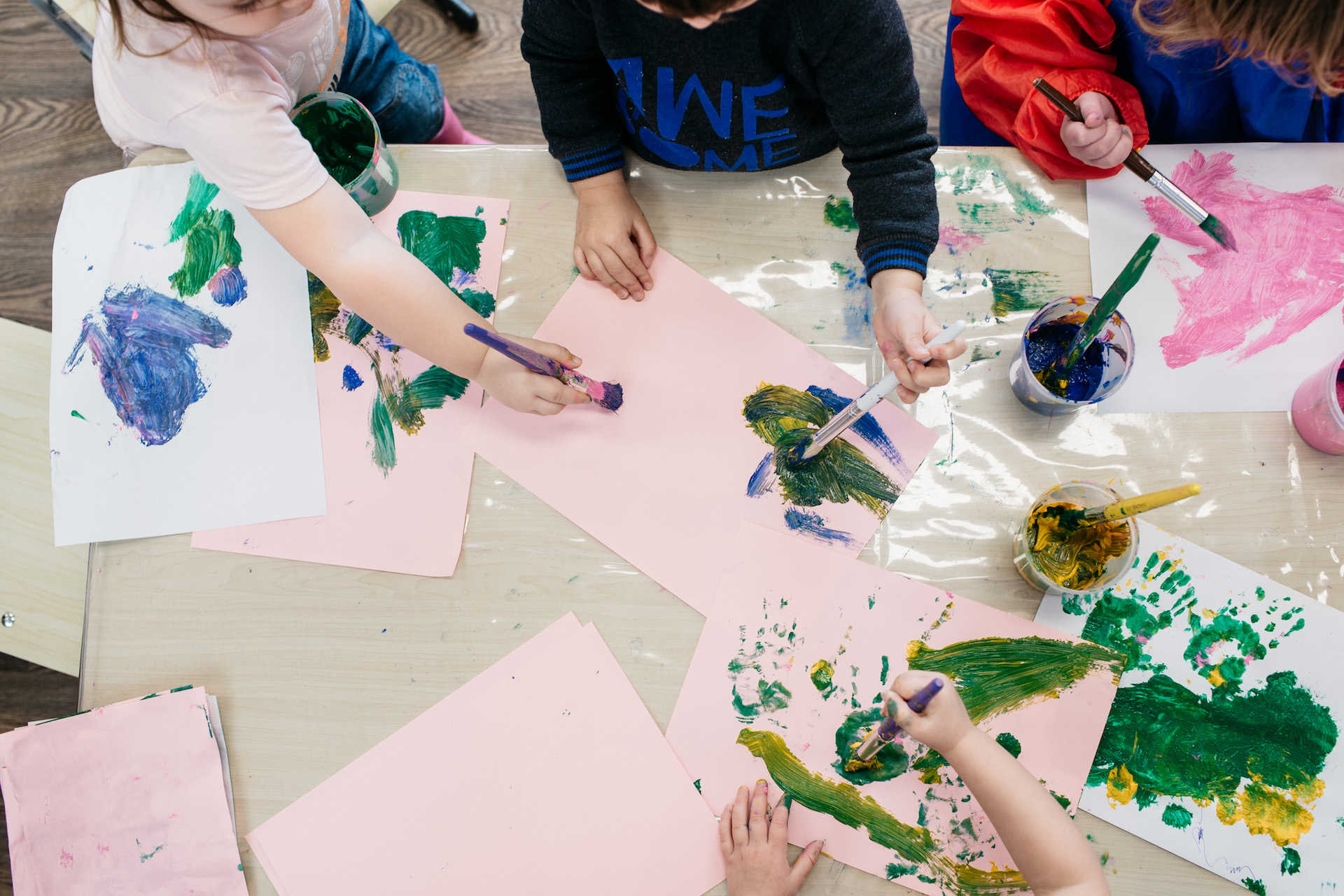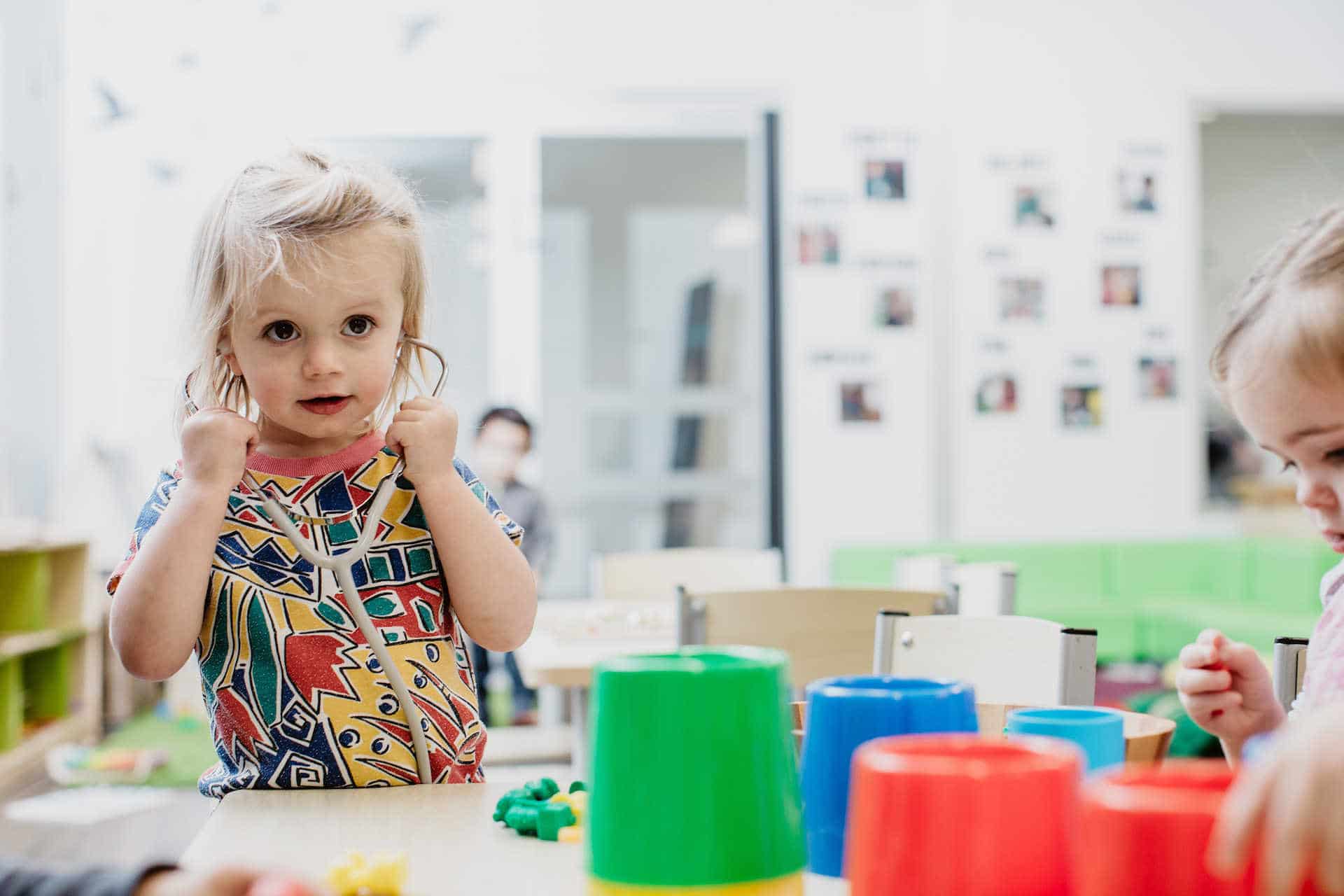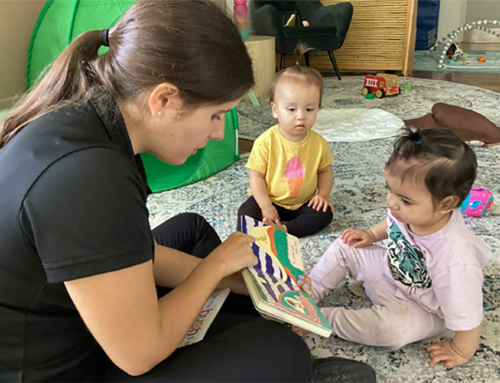Starting school is a huge milestone in a child’s life.
Often parents are worried that they have not done enough to prepare their child for this transition. This is especially true in Australia because it has some of the earliest starting ages anywhere. Also, the fact that each state sets its own guidelines means that families across the country are having different experiences.
In addition, parents with children born in the months of January through April struggle with the added burden of trying to decide when to even start their child in school. Debate continues as to whether it is beneficial to hold these children back so that they have extra time to develop before beginning school. In this environment of confusion and conflicting advice it is difficult for parents to know if their child is ready to begin their formal education or not.
Although typical academic readiness, is important, social and emotional maturity are equally as critical. Parents should consider the following things:
- Does my son or daughter interact well with other children?
- Do they know basic information about themselves?
- Have they developed fine motor skills to prepare for writing?
- Can they follow several directions at once?
- Can they put on their own coat and use the toilet by themselves?
- Do they know letters and numbers?
It’s OK to Feel Overwhelmed
At this point you are probably feeling overwhelmed. It can seem as though there are so many things for kids to learn before they even set foot inside the school building. While there are plenty of skills that children need, they do not have to be perfect at them all of the time in order to be successful in school. A positive attitude and an interest in learning can go a long way.
Also, school is a place where children will continue to develop their social, emotional and academic selves for years to come. Expecting excellence on the first day is destined to lead to disappointment. Still, there are plenty of things that you, as a parent can do to help your child arrive at their first day of school happy and prepared.
1. Socialisation
Obviously, if your child attends a daycare or preschool they will be interacting with their peers. If your child stays at home then this can be a bit more challenging. However, there are still plenty of ways to increase their exposure to other children. One simple and free option is to simply take them to the local playground. Waiting for the slide or pushing a friend on a swing helps them learn to take turns and work together.

Libraries are another great, free place to interact with other kids. Story times also help develop their literacy and encourage them to pay attention and sit still. You can also choose to enrol your child in structured activities like swim lessons, football, or dance.
These all help them adjust to the structure of learning in a group setting. They are also great for getting kids to support each other’s efforts and develop team spirit.
2. Self Awareness
We all want to think that our children will always be safe and protected but unfortunately that is not always the case. When a child starts school they will be away from you for much of their day.
It is important that they know key details about themselves and that they have the confidence to express themselves. If they accidentally wander away from the rest of the group when the class is having a day at the science museum they need to be able to convey who they are. Also, knowing their personal information and being able to write their name helps kids develop a sense of themselves as individuals.
To teach things like age, address, phone number, and parent’s names you can make things like a phone number or address into a silly song, that is more likely to catch their interest and help their memory. Simply discussing your address in contrast to other address can also be successful.
For example, explain that you live at 4 Meadows Street, Grandma and Grandpa live at 82 Hilltop Road. Then the next time you go to Grandma’s point out the street sign with the name on it and the number on the house. Contrast that with your street sign and the number on your house. Seeing it “in person” will help your child’s memory retain the information.
3. Fine Motor Skills
Everyday activities like writing and cutting can seem so mundane to adults that it is easy to forget that these were activities that we once had to learn how to do. Obviously, you can practice these activities directly with your child.

Always give them plenty of opportunities to draw, colour and be creative. This helps expand their mind, as well as their motor skills. For something more directed, you can help them practice writing their letters and eventually their name. If you need help, there are plenty of workbooks available that can buy. These will free you from having to be creative!
Pre-school kids love to practice cutting and will cut pretty much anything you put in front of them. Simply help them maintain the proper grip with the scissors and help them guide the non-dominant hand to hold the paper safely and securely. In addition, you can do many other less structured activities to increase fine motor skills.
One thing you can do is “hide” several small toys in a large container of sand. Then give your child a spoon and a small kitchen sieve. Let them sift the sand and dig for the buried treasure. You can also do this with activity with rice, instead of sand.
Another activity you can try is putting water in two or more different containers and have your child transfer the water between the containers using a sponge. The motion of squeezing the sponge is great for strengthening their hands and arms. You can vary this activity many ways and if you don’t mind getting a bit messy you can even put a bit of food colour in each container and let them learn about mixing colours at the same time.
4. Multi-Part Directions
Trying to get a young child to follow directions can often be very challenging. After the 35th time you have told them to wash their hands and they don’t listen to you, you find yourself faced with a dilemma.
Do you protect your sanity, skip the hand washing and let them just eat their snack? Or do you drag the child into the bathroom and wash their hands for them while they cry and tell you how mean you are?
Every parent has been there.
Hopefully, you have been working on this for a while and by the time your child is getting ready to start school they can be counted on to follow basic directions for the majority of the time. The next step is to practice giving them more complex directions, like those they will be expected to follow in a classroom.
You do not have to go out of your way to do this. You can easily incorporate it into your everyday routine. When you come home from the supermarket ask them to take off their shoes and then wash their hands. After dinner, ask them to put their dishes on the counter and then wipe their spot clean with a cloth.
If they are being resistant you can encourage them by letting them know that they will need to be able to these types of things in school like the other “big kids.” If they have a younger sibling you can also do the reverse and make them feel special that they are able to follow direction and have special responsibilities that their little siblings can’t do yet.
Also, anytime you make something into a game it can help. Offer to race them to see which of you can take off your shoes and wash your hands the quickest.
5. Personal Care and Hygiene
When little Johnny is taking forever to put his coat on in the morning and you are late for work it can be easy to step in and do it for him.

It is important, however, that kids be able to do these and other comparable tasks for themselves before they start school. One simple, but by no means easy, way to encourage independence is to just step back and let them do it themselves. This may mean you all have to adjust your schedule. You may need to get up ten minutes earlier so that your child can take the time to dress themselves. Also, make yourself less accessible.
Often children will be feeling frustrated too. If they see that you are standing about waiting for them it can make them anxious and encourage them to just fall back on asking for your help because it is easier.
6. Academic Skills
One mistake parents make is focusing too heavily on this area, while neglecting everything else we have already talked about. Still, academics are important and kids should have some basic skills in place before they begin school. In many ways though these are the most straightforward to acquire.
One recent study claimed that kids who watched Sesame Street were as academically prepared as their peers who went to preschool! Preferably, however, television would be one small facet of your preparation plan. Similarly, there are many electronic games that do help children learn. These are absolutely helpful, but are best used as a complement to working with your child yourself.
You do not have to be a teacher yourself, or have any special skills to help your child with reading and maths. Simply reading to your child as much as possible increases their language aptitude exponentially. Sing the alphabet song, go to the library, make books a part of your bedtime routine. For numbers, count the oranges as you put them in the cart at the grocery store.
When your child picks up two new rocks for their “collection” when you are out walking, add them in when you get home. Count how many rocks they already have, then count how many you are adding, then count how many there are together.
Have a contest and count how many times each of you can jump up and down before having to stop. When you just make letters and numbers a part of the day, your children will not even realise they are learning something.
Final Thoughts
When your child is preparing to start school it can be at least as difficult for you as it is for them. After all, they don’t really have any expectations, but you probably do. Helping them get ready for their first day can also help you feel more confident.
If you stay focused on helping them with their social and emotional development they will better be able to handle the ups and downs that their schooling will undoubtedly contain. Don’t leave out the more academic preparation, but remember that covering that information is the actual purpose of school.
If your child can successfully navigate the school environment, they will be well placed to master the academics.






